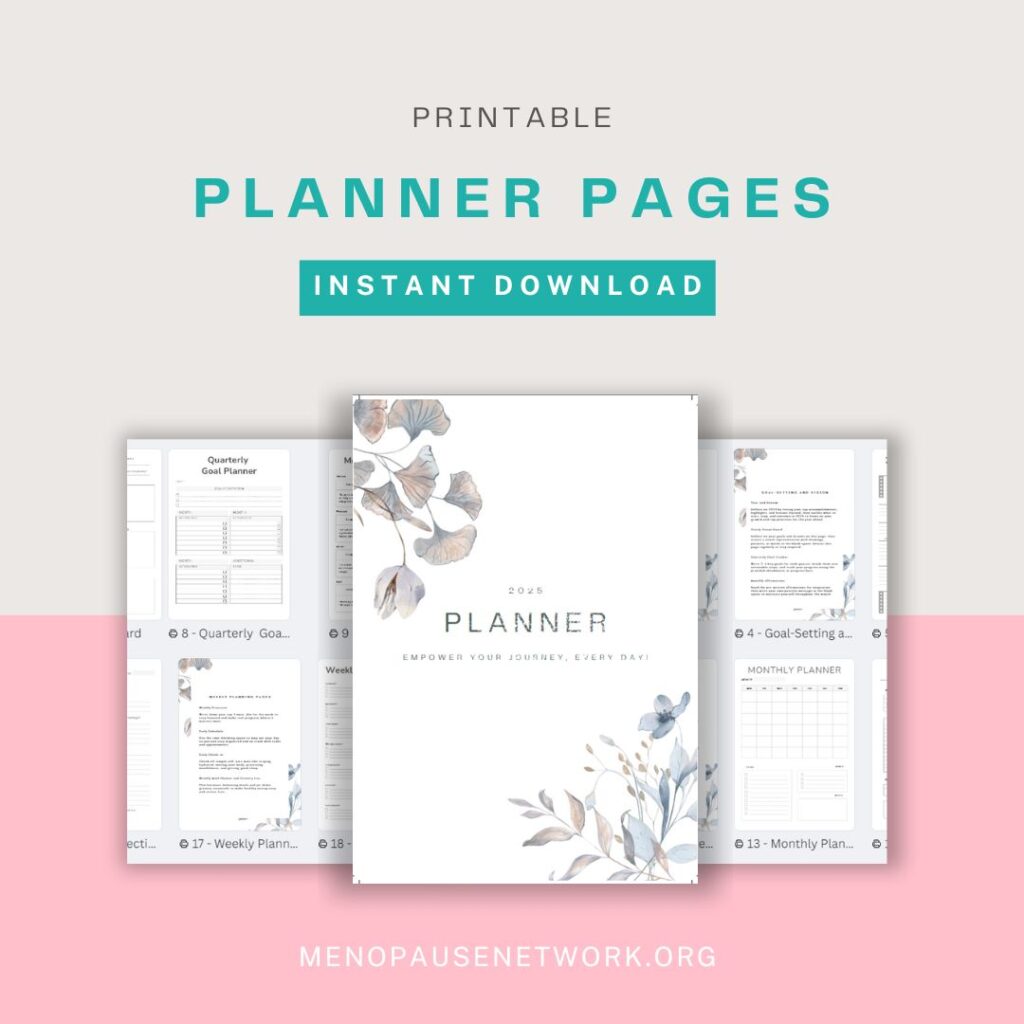Menopause at Work: Let’s Make Support the New Norm
Picture this: you’re back at work, and in the middle of a meeting, nailing your points, when out of nowhere—you’re hit with a hot flash so intense it feels like you’ve been teleported into a sauna. Or maybe you’ve been staring at the same email for 10 minutes, trying to decode it through a foggy brain that refuses to cooperate. Sound familiar? That’s menopause and perimenopause for you: a natural part of life that doesn’t wait for convenient timing—and definitely doesn’t stop at the office door.
Millions of women experience these challenges at work every day, yet nobody’s talking about it. Why? Because menopause is still treated like a taboo topic—something to suffer through quietly. But here’s the reality: the symptoms of menopause aren’t just uncomfortable; they can derail careers, shrink confidence, and make women feel like they have to choose between their health and their job.
That’s not just bad for women—it’s bad for businesses. Companies that ignore the realities of menopause lose out on talented, experienced employees who are vital to their teams. It’s time to change the script. Let’s open up the conversation, ditch the stigma, and create workplaces where women can thrive at every stage of life. Because menopause isn’t the problem—the lack of support is.
Ready to dive in? Let’s talk about how workplaces can step up, starting today.
Menopause: More Than Hot Flashes
Perimenopause—the not-so-fun dress rehearsal before menopause—typically kicks off in a woman’s 40s or 50s and can last for years. It’s not just about hot flashes, though those are memorable. Here’s what women face during work hours (and beyond):
- Brain Fog: Can’t remember where you left your coffee or what that email was about? It’s not you, it’s the hormones.
- Sleepless Nights: Tossing and turning means waking up more zombie than boss lady.
- Physical Surprises: Joint pain, night sweats, and sudden temperature shifts that feel like personal weather patterns.
- Mood Swings: Confidence, meet rollercoaster. Anxiety, self-doubt, and irritability are regular guests.
These aren’t minor hiccups. For many women, these symptoms are career derailers, forcing them to step back from leadership roles or even leave the workforce entirely.
Why Women Stay Quiet
So, why don’t more women speak up about menopause at work? It boils down to one word: fear. Women worry that opening up about their symptoms—like brain fog, mood swings, or even hot flashes—might lead to unfair judgments. They fear being labeled as less capable, overly emotional, or even “past their prime,” which can put their careers and professional reputations at risk. This fear isn’t unfounded; in many workplaces, the stigma surrounding menopause is real and pervasive, creating an environment where silence feels safer than vulnerability. Unfortunately, this silence doesn’t just mask their struggles—it perpetuates a cycle where menopause remains an invisible issue, leaving workplaces uninformed and ill-equipped to offer meaningful support. Until we break this stigma, women will continue to bear the burden of managing their symptoms alone, and workplaces will miss the opportunity to foster a truly inclusive environment.
Here’s What Workplaces Can Do (Hint: It’s Not Hard)
Supporting women through menopause doesn’t mean rewriting the employee handbook. Small, thoughtful changes can make a big difference. Here’s where to start:
1. Talk About It!
Normalize the conversation with workshops, manager training, and open discussions. Understanding menopause fosters empathy, breaks stigma, and signals to employees: “We’ve got your back.”
2. Flexibility Is Key
Offer flexible work hours or remote options for tough days. In-office? Simple tweaks like fans, temperature controls, or quiet spaces can turn a meltdown into a manageable day.
3. Revamp Benefits
Ensure healthcare plans cover menopause-related needs like hormone therapy, counseling, or specialized sleep treatments. Access to experts can be a game-changer.
4. Rethink Workloads
On brain-foggy days, allow women to focus on high-priority tasks rather than juggling everything at once. A little grace goes a long way.
5. Stock the Small Stuff
Cooling wipes, period products, and other essentials in office bathrooms aren’t just practical—they show women they’re seen and supported.
6. Build a Sisterhood
Encourage peer support groups or networks where women can share tips, advice, and a little humor (because, let’s be honest, sometimes you’ve just got to laugh about it).
Remote Work: A Blessing and a Challenge
For women working from home, flexibility is a perk, but isolation can amplify symptoms like anxiety or brain fog. Employers can help by setting up virtual support groups or encouraging outdoor breaks to recharge.
Self-Advocacy: It’s Your Superpower
Workplaces play a role, but so do women. Advocate for yourself by talking to HR or your manager about accommodations that can make your day-to-day easier. Remember, prioritizing your health isn’t just good for you—it’s a step toward making menopause a workplace norm.
Why Menopause Support Is Good Business
Here’s the bottom line: when women thrive, businesses thrive. Supporting employees during menopause isn’t just about being nice—it’s about retaining top talent, boosting productivity, and creating a culture where every employee feels valued.
Menopause isn’t a career death sentence or a dirty secret. It’s a natural transition that women can navigate with the right tools, understanding, and support. When workplaces get this right, everyone wins.

























